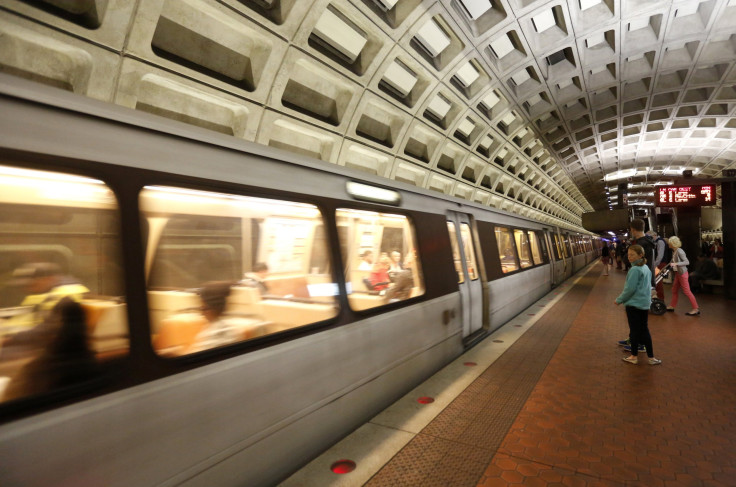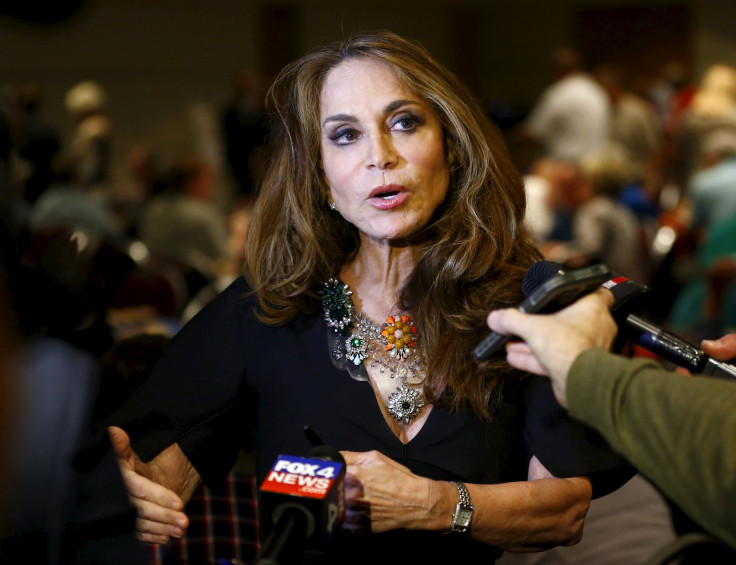Metro Bans 'Issue' Ads: Pamela Geller Submits 'Draw Muhammad' Cartoon Advertisements For Washington DC Transit System

The Washington Metropolitan Area Transit Authority reportedly moved Thursday to ban so-called "issue" ads that promote political or religious subjects from appearing on its trains and buses. The board of directors for the authority, also known as Metro, approved a motion prohibiting issue ads through the end of the year, WAMU reporter Martin Di Caro tweeted.
The decision came days after Pamela Geller, the woman behind the controversial "Draw Muhammad" contest in Garland, Texas -- where two gunmen linked to the Islamic State group tried to attack and died in shootout -- submitted a cartoon of the Prophet Muhammad to appear as a Metro advertisement. Geller is the president of the American Freedom Defense Initiative, which the Southern Poverty Law Center lists as an "anti-Muslim hate group." Her "Draw Muhammad" event was seen as a response to the January massacre at Paris magazine Charlie Hebdo, known for its satirical cartoons of Islam's founder.
The image Geller sent for Metro approval was the winning cartoon from the contest, paired with a caption reading "Support Free Speech," the Washington Post reported.

Issue ads are common on the Metro, where 20 percent of peak-hour riders are federal employees, according to the agency's facts page. Recent campaigns have included banners lobbying against passage of Trade Promotion Authority laws and supporting the Open Skies Agreement, which are hot issues on Capitol Hill. Banning these issue ads could cost the transit authority up to $3 million, WUSA 9 reporter Bruce Leshan tweeted. But an unnamed Metro official told Washington Post reporter Paul Duggan the agency feared the ads could make train and bus stops targets for terrorists.
A Metro spokesman did not completely rule out "issue" ads for the future. “In the coming months, Metro will fully consider the impact that issue-related advertisements have on the community by gathering input from riders, local community groups and advocates,” Michael Tolbert told the Hill. “Metro will also carefully examine the legal concerns related to displaying, or discontinuing the display of, issue-related advertisements.”
The Metro's ban follows a similar one in New York City, also thought to be sparked by Geller. When the local transit authority balked at her request to place ads on mass transit reading "Killing Jews is Worship that draws us close to Allah," she took the issue to court. A federal judge ruled in April that the Metropolitan Transit Authority couldn't stop the ads from running, so it instead forbade all "advertisements expressing viewpoint messages," NBC reported. Chicago, Los Angeles and Philadelphia also prohibit political ads.
In an interview before the Washington transit authority's decision, Geller told the Post she planned to challenge any rule preventing her from running her poster. "There is nothing profane, or objectionable, or sacrilegious about my ad," Geller said. "The cartoon clearly addresses the need to stand up against, rather than surrender to, violent intimidation and forcible attempts to impose Sharia [Islamic law] upon Americans — for drawing Muhammad is not illegal under American law, but only under Sharia."
© Copyright IBTimes 2024. All rights reserved.






















